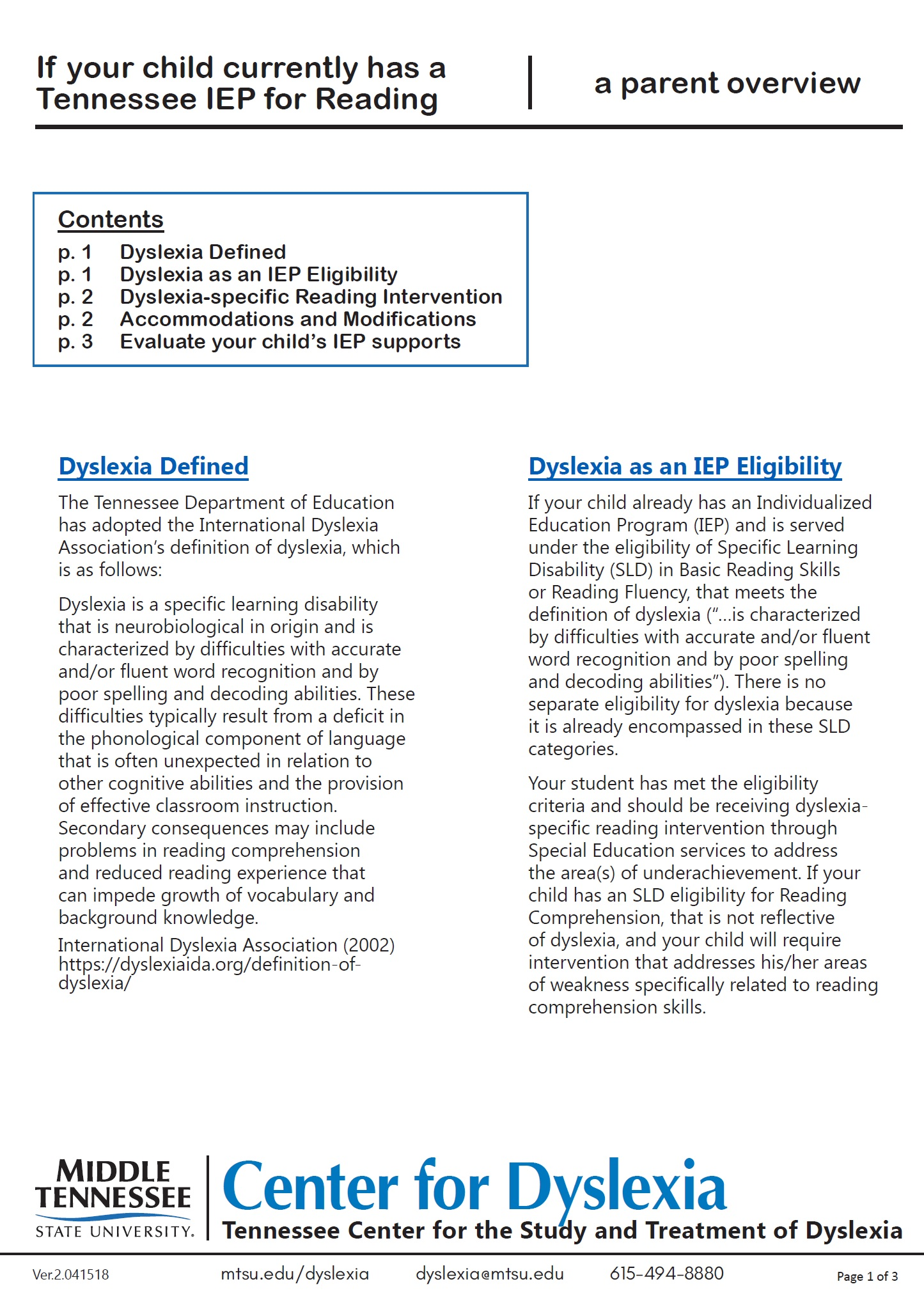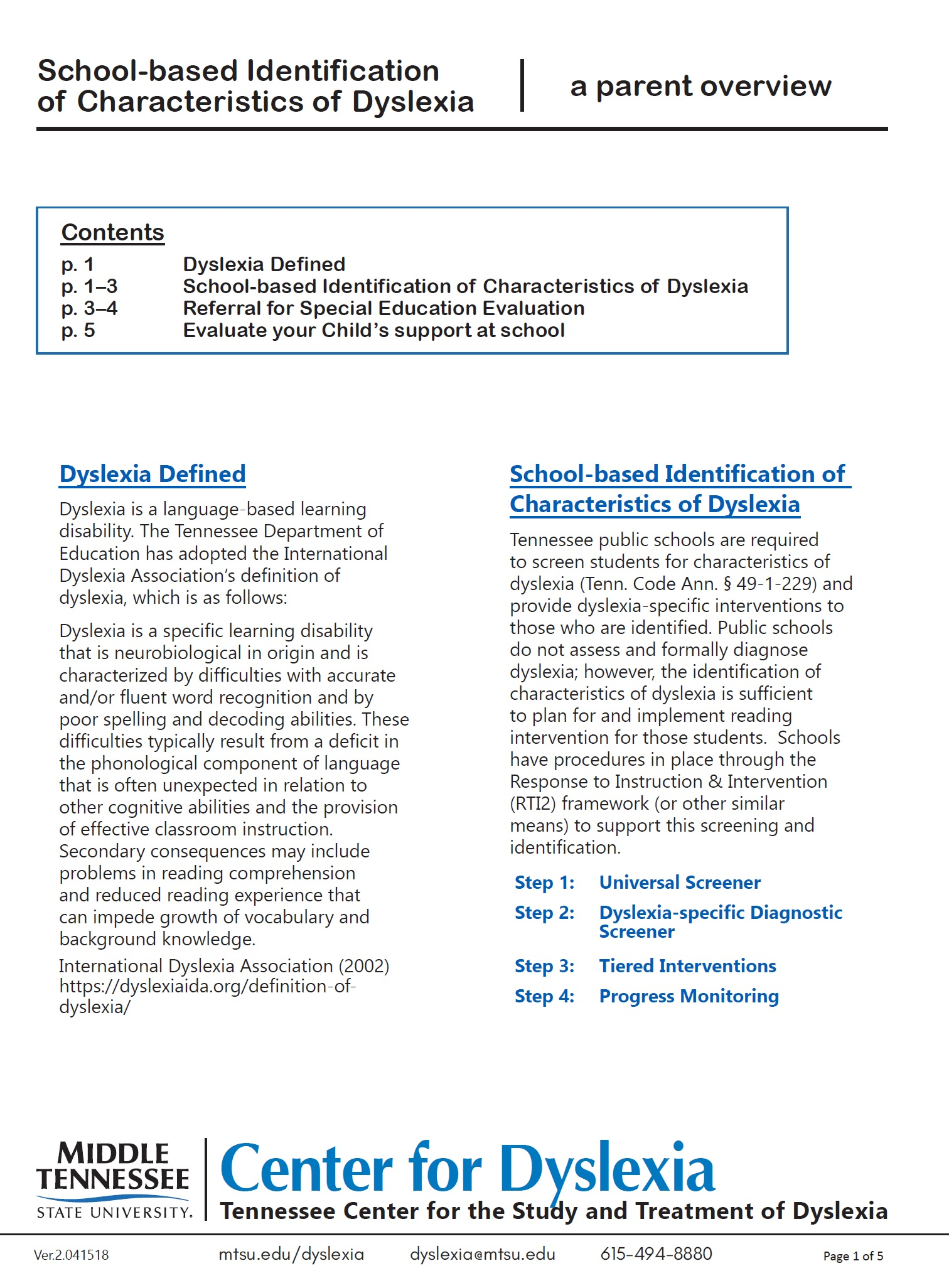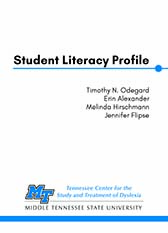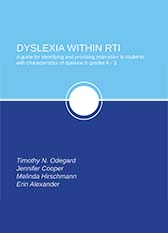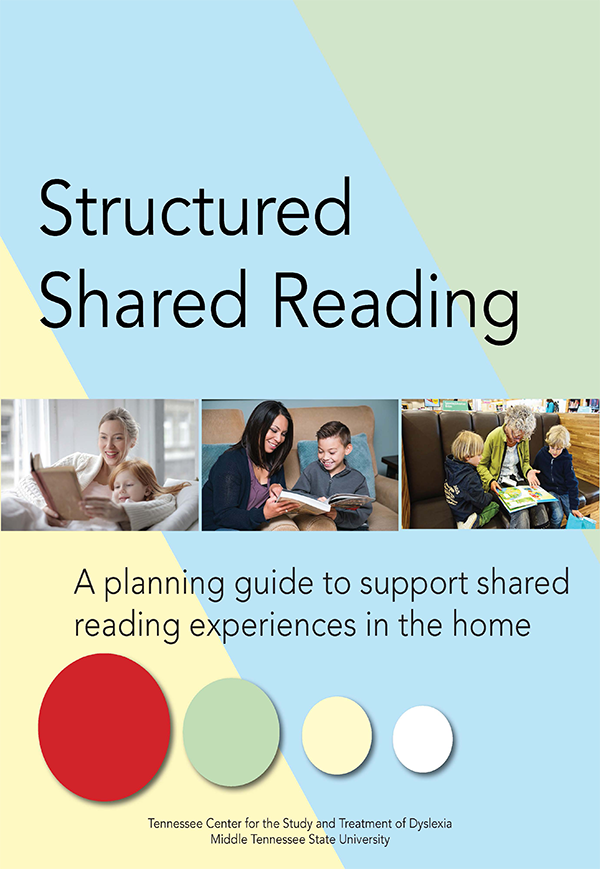E-books & Planning Guides
These e-books and planning guides were developed by staff at the Center for Dyslexia. They provide information about topics related to providing instruction to students, how to identify dyslexia, and what parents can do in the home to support their children with literacy.
|
|
How Dyslexia Fits Within a Current IEP for ReadingParents and teachers often have questions about how dyslexia fits within a child's current IEP plan. To aid parents and educators in understanding how it does, staff at the Center for Dyslexia developed this document. |
|
|
School-Based Identification of Characteristics of DyslexiaParents and teachers may find this resource of interest. It provides guidance and insights into how dyslexia can be identified in schools. The document is based on Tennessee policies and procedures. Also, the information shared in the document is aligned with federal policies. |
|||
|
|
Student Literacy ProfileThe Center for Dyslexia staff created this tool to aid educators in plotting student data. It can be used to identify those students whose reading struggles fit the profile of dyslexia and other forms of reading disability. |
|
|
Dyslexia Within RTI (e-book)This e-book was developed to help educators and parents understand dyslexia. Care was taken to help explain how dyslexia fits within the context of a multi-tiered system of support in the primary grades. |
|||
|
|
Structured Shared Reading: A planning guide to support shared reading experienced in the homeReading with a child has many important benefits for you and the child. You can make this planned reading time more enjoyable by having a structured approach when reading with a child. In this guide, we outline 5 steps you can follow to make the most from the time you spend reading with a child. |
|
|
Decoding Tips for Parents: 5 common word reading errors and how to helpAccurate word reading is a critical step in understanding what is read! This document outlines common word reading errors and how you can help children work through and overcome them. |
|||
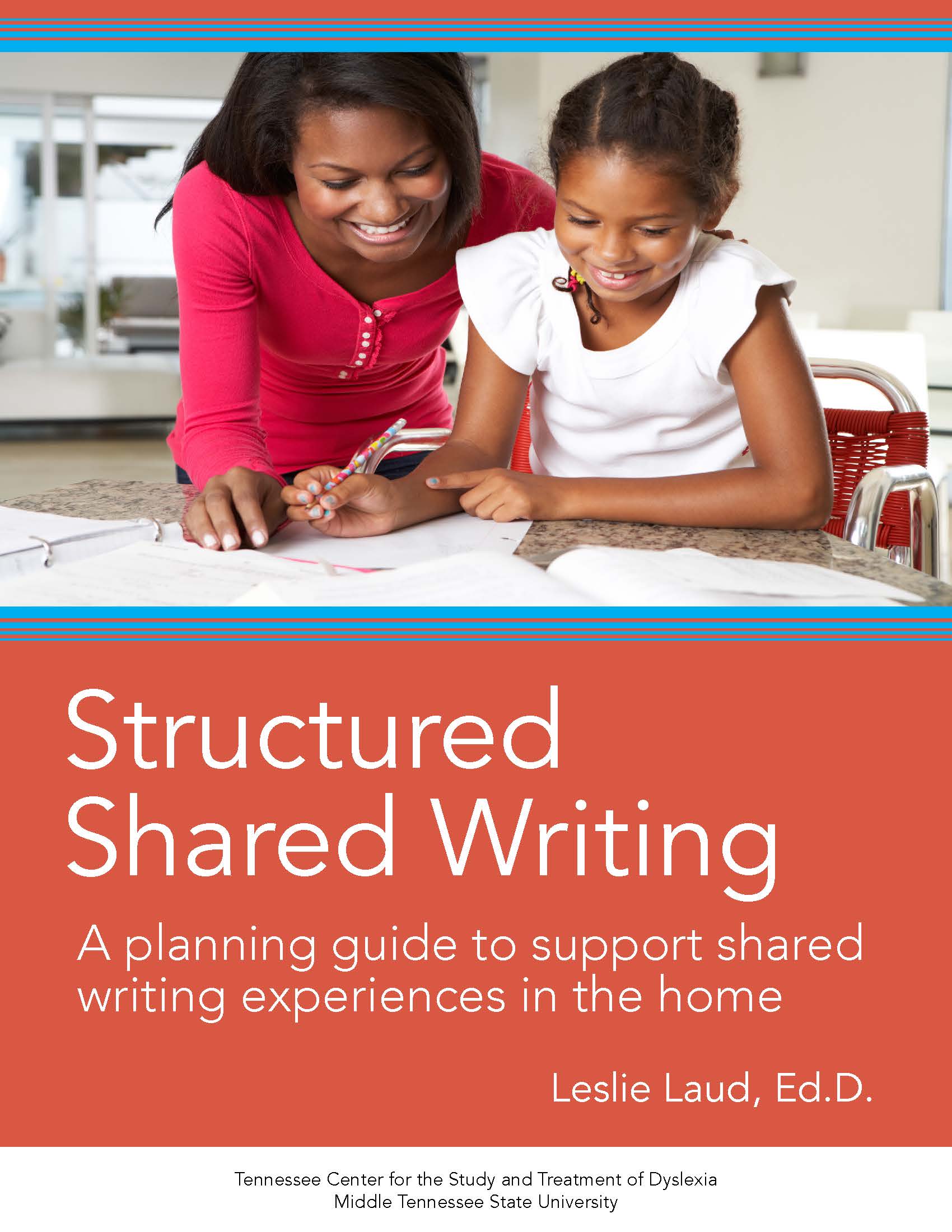 |
Structured Shared Writing: A planning guide to support shared writing experiences in the homeChildren have a natural desire to communicate their ideas. In school, students regularly use writing as a tool for learning and as a way to show what they have learned. This document outlines ways to support children to aid them with writing to express their ideas. |
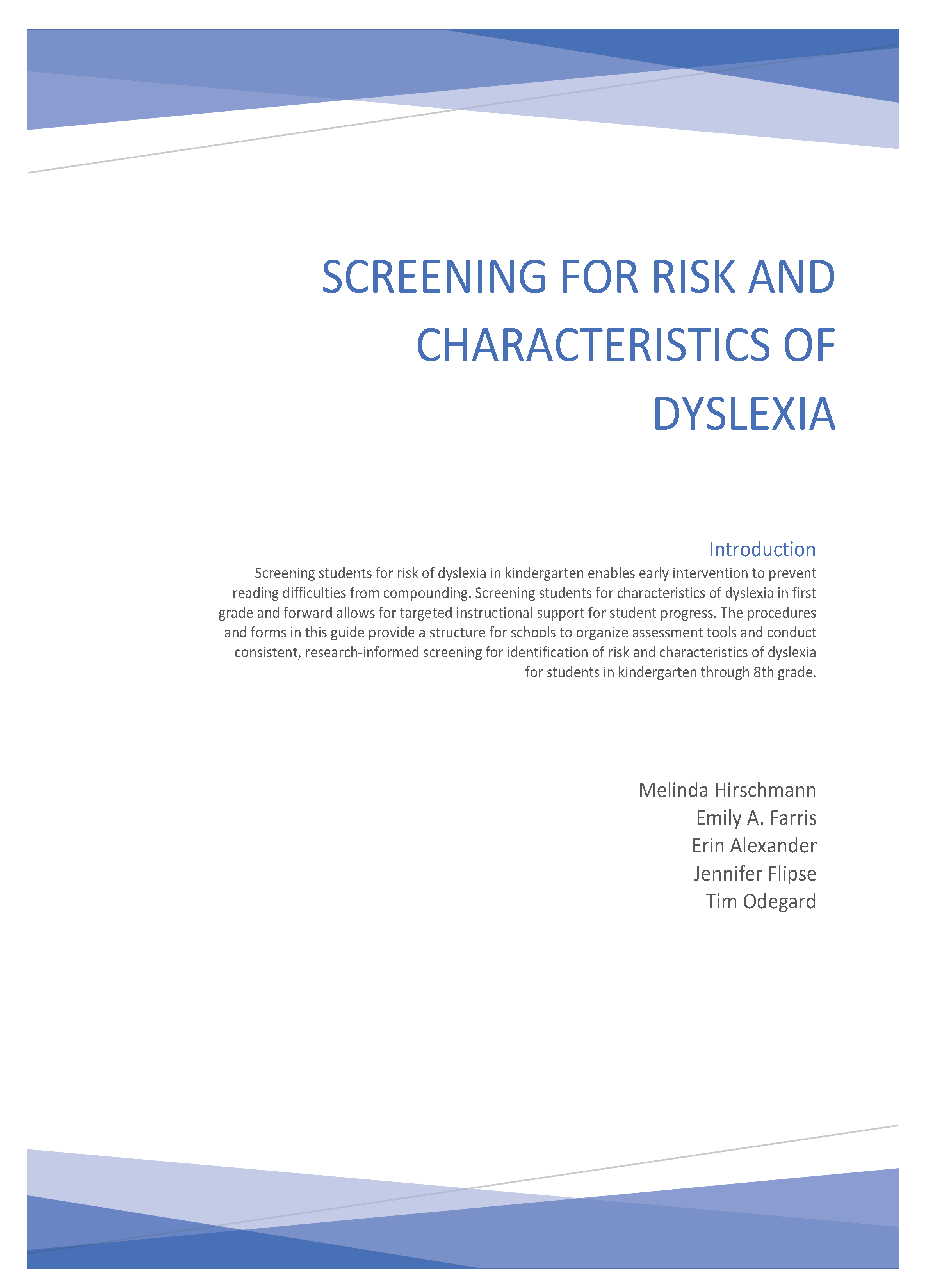 |
|
Screening for Risks and Characteristics of DyslexiaScreening students for risk of dyslexia in kindergarten enables early intervention to prevent reading difficulties from compounding. Screening students for characteristics of dyslexia in first grade and forward allows for targeted instructional support for student progress. The procedures and forms in this guide provide a structure for schools to organize assessment tools and conduct consistent, research-informed screening for identification of risk and characteristics of dyslexia for students in kindergarten through 8th grade. |
|||
|
|
|
|
|||||
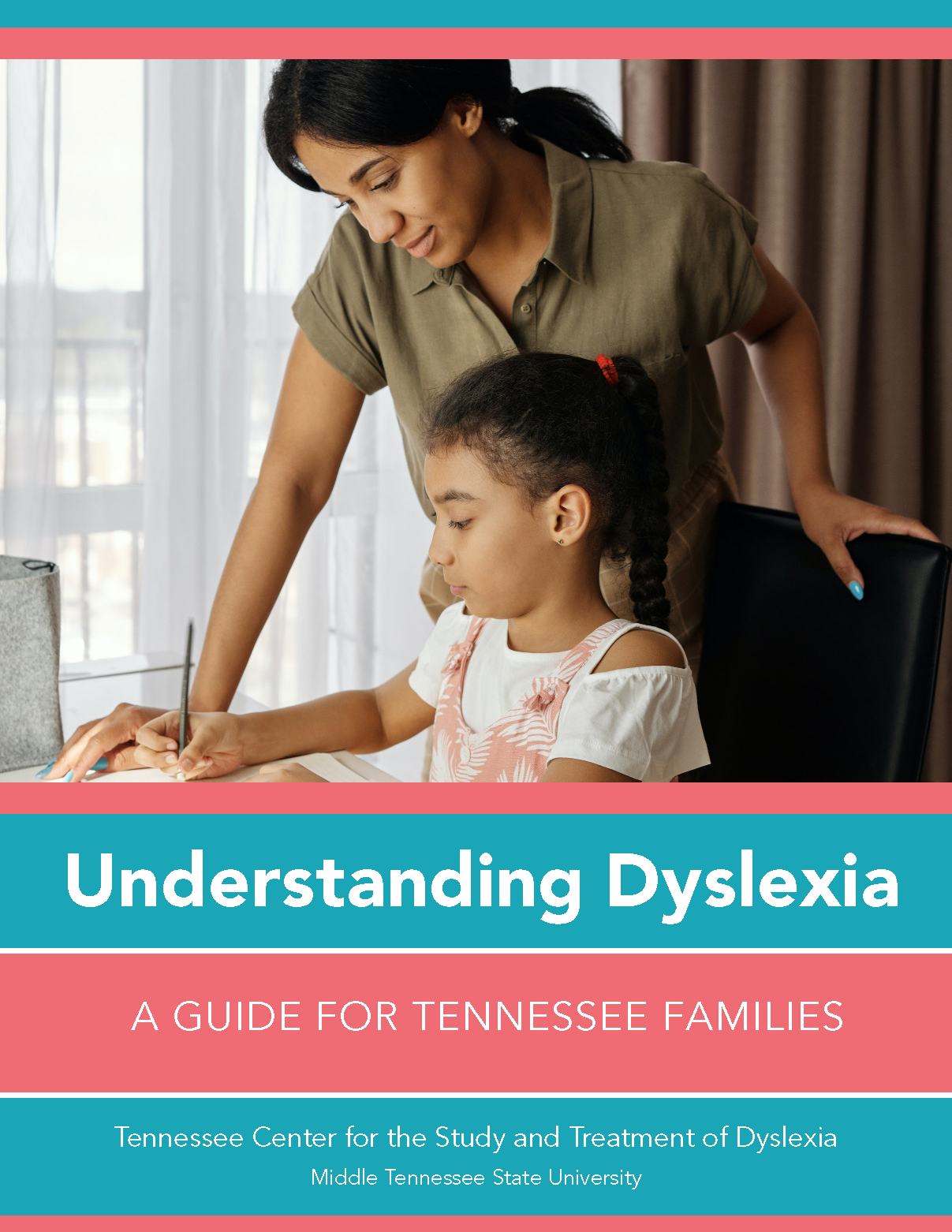 |
Understanding Dyslexia: A guide for Tennessee familiesThis e-book was developed to be an easy to understand guide to help parents and caregivers understand what dyslexia is and how to get help for their child. It includes information about the supports and services available in the school setting and the type of reading instruction that is known to be effective. It also outlines accommodations that a child could receive in the classroom and technology tools that can help with reading and writing. This guide also reviews the Tennessee laws that are meant to help students with characteristics of dyslexia. |
|
|
||||
|
|
|
|
